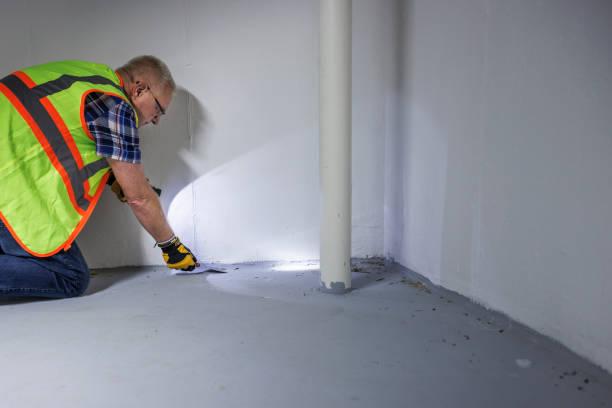Notifications
5 minutes, 53 seconds
-14 Views 0 Comments 0 Likes 0 Reviews

Ever walked into your basement after a storm and noticed a damp, musty smell or puddles forming in corners? It might seem minor initially, but it’s your house crying out for help. That silent space below your feet often gets overlooked, but keeping it dry is one of the smartest things you can do as a homeowner. So, what’s the deal with basement waterproofing, and why should you care? Let’s dive in.
Why Waterproofing Matters More Than You Think
Your basement is more than just extra storage space. It plays a critical role in your home’s structure and stability. When water sneaks in through cracks, leaks, or even humidity, it can slowly wreak havoc. Mold, mildew, foundation damage, and even pest infestations can all trace back to one root cause: moisture.
This is where basement waterproofing services come in clutch. By sealing up your basement and redirecting water away from your foundation, you prevent many problems before they start. It’s one of those upgrades that pays off in peace of mind and real long-term value.
Types of Basement Waterproofing
There are a few main types of waterproofing basement solutions. Understanding the differences can help you figure out what your home might need.
1. Interior Waterproofing: This involves sealants, coatings, and drainage systems installed inside the basement. It’s great for managing minor water intrusion and controlling humidity.
2. Exterior Waterproofing: This is a more extensive process. It includes digging around the foundation, applying waterproof barriers, and installing drainage to keep water from ever touching your home’s walls. It’s often the most effective method, though also the most labour-intensive.
3. Drainage Systems: Think sump pumps and French drains. These help move water from your home to a safe discharge point. They’re often used in tandem with other methods.
Professional basement waterproofing services typically combine these techniques to ensure your home is fully protected.
Signs You Might Need Waterproofing
Not sure if you need to worry about waterproofing basement areas? Here are some red flags:
Even if these issues seem minor, they can snowball into serious problems. The earlier you catch them, the better.
The Long-Term Benefits
Sure, waterproofing might feel like an annoying chore now. But picture this: a clean, dry basement that you can turn into a gym, a game room, or even a cozy den. That’s not just added living space—it’s added value.
Plus, a dry basement helps keep your whole home healthier. Mold spores don’t just stay in the basement. They rise and circulate through your HVAC system, potentially impacting your family’s health. Basement waterproofing services help you sidestep that headache completely.
DIY or Call the Pros?
Some small fixes, like applying sealants or setting up a dehumidifier, are doable for a handy homeowner. But when water’s getting in from the outside or foundation cracks are involved? That’s pro territory.
Hiring experts for waterproofing basement spaces means you’ll get the job done right the first time. They can diagnose hidden issues and recommend the right combination of interior and exterior solutions. It's one of those cases where trying to save a buck now could cost you big time later.
The Bottom Line
Your basement isn’t just for storage—it plays a major role in supporting the structural health and air quality of your entire home. A damp or leaky basement can weaken foundations, invite mold growth, and even impact indoor air health throughout the house. That’s why waterproofing basement areas is more than just a preventative measure—it’s essential home maintenance.

